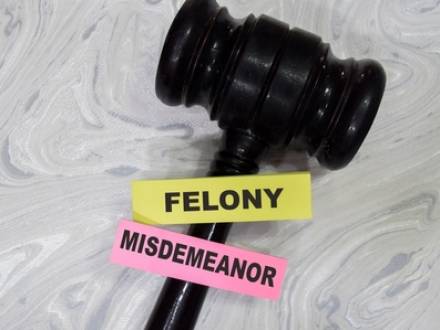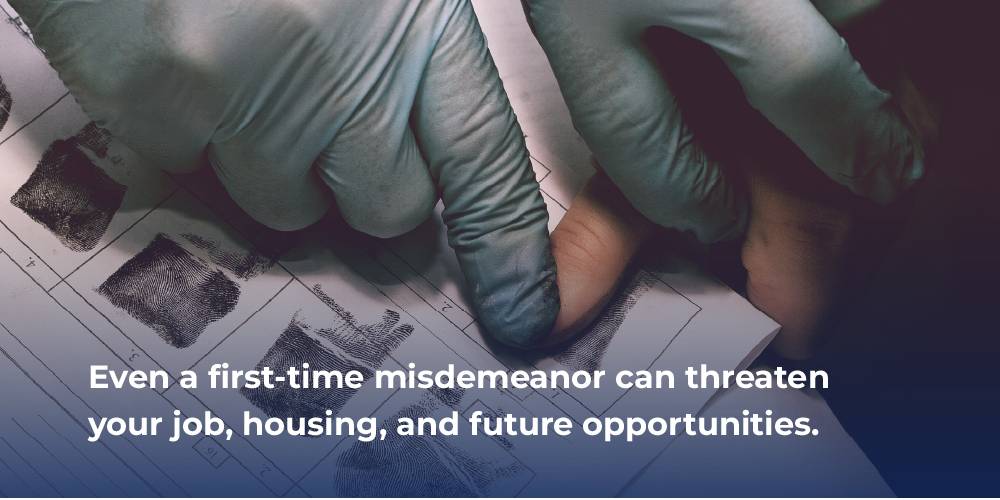
 When you are charged with a misdemeanor, you may be tempted to handle your case on your own. While the possible penalties are generally not as serious as a felony, the stakes are still high. In reality, a misdemeanor in Illinois can affect your job, housing, reputation, and even your future opportunities. The court process also moves fast. If you do not understand what is happening, you might make choices that could harm you later. A DuPage County, IL criminal defense lawyer can help you better understand the allegations and build a defense.
When you are charged with a misdemeanor, you may be tempted to handle your case on your own. While the possible penalties are generally not as serious as a felony, the stakes are still high. In reality, a misdemeanor in Illinois can affect your job, housing, reputation, and even your future opportunities. The court process also moves fast. If you do not understand what is happening, you might make choices that could harm you later. A DuPage County, IL criminal defense lawyer can help you better understand the allegations and build a defense.
Illinois divides criminal offenses into felonies and misdemeanors. Felonies are more serious, but misdemeanors can still bring harsh penalties. Under 720 ILCS 5/2-11, a misdemeanor is any offense that carries a possible jail sentence of less than one year. Illinois separates misdemeanors into three classes:
Class A: Up to 364 days in jail and fines up to $2,500
Class B: Up to six months in jail and fines up to $1,500
Class C: Up to 30 days in jail and fines up to $1,500
Each charge has its own rules and penalties. For example, Class A misdemeanors include offenses such as battery or retail theft under a certain dollar amount. Even the lowest-level misdemeanor can lead to jail, court supervision, or probation. You may also face consequences that do not come from the court, such as losing a job or the risk of being denied a rental application.
First-time offenses are sometimes, but not always, treated more lightly. Illinois judges look at several factors, including the details of the case, the alleged harm, and your background. A first offense can still lead to jail time, although some cases qualify for court supervision istead. Under 730 ILCS 5/5-4.5-55, court supervision is an option for some first-time offenders, but it is not guaranteed. An experienced attorney can review your situation and present the strongest arguments on your behalf.
A criminal defense lawyer can make a major difference in the outcome of your case. The legal system is complex. The prosecutor is trained and experienced, and the judge must follow strict rules. If you try to navigate the process alone, you may misunderstand what you can and cannot agree to. When you have a legal representative, they will:
Review the police report and challenge any errors
Identify problems with the arrest or the evidence
Negotiate with the prosecutor for reduced charges
Argue for court supervision instead of a conviction
Protect you during questioning and court appearances
Help you avoid guilty pleas that create long-term harm
With a lawyer, you can understand each step of the process and make decisions that protect your record. An attorney also knows what local judges and prosecutors look for, which can help you reach a better outcome.
Pleading guilty without legal advice means you may accept penalties that are harsher than you deserve. You may also miss chances to qualify for dismissal or supervision.
Under 725 ILCS 5/113-4, the court must make sure you understand your rights before a guilty plea is accepted. However, the judge cannot give you legal advice. The prosecutor cannot help you either. You may feel pressured to agree to something you do not fully understand. Your attorney will review whether a guilty plea is the best choice for you.
In some cases, a misdemeanor charge can be dropped before the hearing, but there is no guarantee. Prosecutors have the power to continue the case even if the alleged victim wants it dismissed. This is common in domestic battery cases.
A lawyer can help by talking to the prosecutor, presenting evidence early, and pointing out problems with the case. If the evidence is weak, the prosecutor may decide not to move forward. However, without an attorney, you may not know how to show that the case has legal issues. You also risk saying something that makes the prosecutor more committed to pursuing the charge. Early legal representation gives you the best chance of having the case dismissed before a court date.
Some misdemeanors can become felonies based on specific facts. Illinois law allows prosecutors to upgrade charges for things like having prior offenses or the use of a weapon during the offense. The same is true if the alleged victim was part of a protected group. For example, retail theft can become a felony under 720 ILCS 5/16-25 if the value of the property is high enough or if there are past convictions. A battery can also become a felony if it involves certain victims or serious injury.
Felony convictions bring prison time, higher fines, and long-term consequences. Having a lawyer early can help prevent the upgrade of charges or push to keep the case at the misdemeanor level. An experienced attorney can also build a targeted defense strategy that protects your record and keeps the case from escalating any further.

You deserve a defense that is grounded in experience. Attorney Dion Davi is a former prosecutor, which means he understands how the other side builds its cases and how to challenge the evidence effectively. With this background, he can guide you through each step of the process, protect your rights, and help you avoid decisions that can cause long-term harm. If you or someone you care about is facing a misdemeanor charge, now is the time to get the support and direction you need.
Call Davi Law Group, LLC at 630-580-6373 to schedule your free consultation with an experienced DuPage County, IL criminal defense lawyer today. Se habla Español.
 A lawyer’s time and advice are his stock and trade.
A lawyer’s time and advice are his stock and trade.